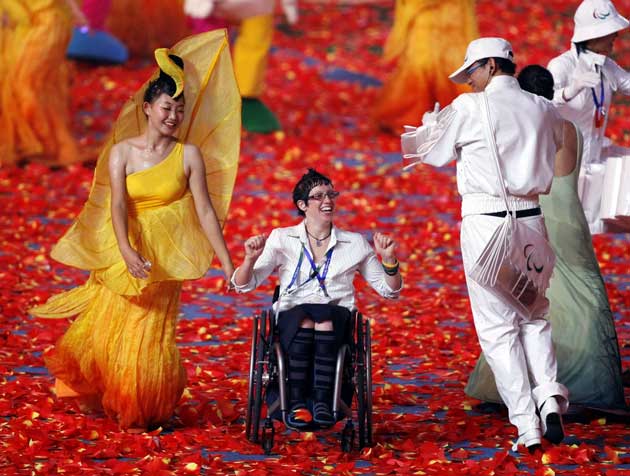The Paralympics are coming home
As the Beijing Games end, the flag heads for Britain – where the Paralympic idea was born

Four years after the international Olympiad returned to its Athens birthplace, London accepted the Paralympic baton yesterday – restoring the Games to their rightful home.
The focus of the handover celebrations was not, in fact, the British capital, but a market town in the heart of Buckinghamshire, 33 miles north-west of London. Under muggy, autumnal skies, Paralympic champions of the past, present and – hopefully – future amassed at Stoke Mandeville hospital, near Aylesbury, to watch the televised acceptance of the Paralympic flag, 5,000 miles away in Beijing, by the London Mayor, Boris Johnson.
They gathered to honour the extraordinary founding of the Paralympics 60 years ago at Stoke Mandeville.
There, a brilliant young neurosurgeon from Germany, Professor Sir Ludwig Guttmann, decided that the most effective way to improve the mental and physical condition of his disabled patients – war veterans who had sustained horrific injuries, particularly to the spinal cord – was to get them playing sports.
"If I ever did one good thing in my medical career," Sir Ludwig wrote in the Reader's Digest in 1967, "it was to introduce sport into the treatment and rehabilitation of disabled people." He had done so on 29 July 1948, when 16 paralysed men and women at the hospital took part in competitions designed to coincide with the opening of the "austerity" Olympics in London. Watched by crowds numbering a few dozen, the contests took place on the hospital lawn.
It became an annual event and in 1952 the Netherlands sent a team, making the Stoke Mandeville Games international. A new movement was born, although it was only in 1960, when the Olympics were transferred to Rome, that they were officially christened the Paralympic Games and held in the same city.
Those present for the official festivities at Aylesbury conceded that Britain's exceptional Paralympic performance over the past fortnight would have been inconceivable without Stoke Mandeville Spinal Injuries Centre, which is still the focal point of British Paralympics. With 102 medals in total – 42 gold, 29 silver and 31 bronze – Team GB came second overall at the 2008 Games, behind only China.
But the loudest cheer at Stoke Mandeville yesterday was reserved for the sight, halfway across the world in Beijing, of Lord Nelson emerging from a Routemaster bus and swapping his eye patch and sword for sunglasses and an electric guitar.
Subscribe to Independent Premium to bookmark this article
Want to bookmark your favourite articles and stories to read or reference later? Start your Independent Premium subscription today.

Join our commenting forum
Join thought-provoking conversations, follow other Independent readers and see their replies